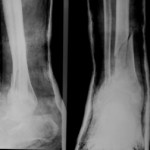Lose Weight > Common Sense To Lose Weight > Common Sense Article > Low Fat Diet Leads To Weight Loss And Lower BMI
Low Fat Diet Leads To Weight Loss And Lower BMI
The most acceptable proportion of total fat in the human diet is still being debated. During a recent debate at the Joint Food and Agriculture Organization of the United Nations/World Health Organization (FAO/WHO), it was agreed that any consequence of total fat intake on body weight was essential to creating global recommendations.
WHO requested a systematic review and meta-analysis to examine the relationship between criteria of body fatness (waist circumference, BMI, and weight), and total fat intake in order to update the WHO guidelines on total fat intake.
Being obese or overweight heightens the risk of:
- diabetes
- some cancers
- high blood pressure
- stroke
- coronary heart disease
- infertility
- some forms of arthritis
- respiratory problems
The investigators collected results from 33 randomized controlled trials that were based in North America, Europe, and New Zealand and made up of 73,589 subjects and 10 cohort studies. The participants had differing ages and health statuses. One group of participants were on a lower than usual fat intake diet (intervention group), while the other group was on a normal fat intake diet (control group). Comparisons were made between the two groups and the effect on the amount of body fat was analyzed after at least three months.
After examination of all the trials, results suggested that diets lower in total fat decrease relative body weight by 1.6kg, BMI by 0.56kg/m² and reduce waist circumference by 0.5cm.
Each one percent reduction in energy from total fat caused a 0.19 kg decrease in body weight, compared with not changing total fat intake. This occurred in populations with 28-43 percent of energy from total fat in studies of six months to over eight years.
All of these outcomes were in trials in which weight loss was not the desired result, suggesting that they happen in individuals with normal diets.
The researchers questioned whether the decrease in weight within the low fat group was caused by participants getting more attention, time, and/or support, in contrast to those in the control group. However, when studies with more time or attention to the low fat group were taken away, the weight decrease stayed consistent.
This means the loss was actually due to lower fat intake. These outcomes were seen throughout all sensitivity examinations, implying that decreasing total fat intake produces a small, but statistically important, weight reduction, compared with normal fat intake.
Total fat reductions were associated with small, but statistically significant, decreases in cholesterol and blood pressure, suggesting an advantage of other crucial cardiovascular risk factors.
The authors concluded that decreasing total fat intake in adults can result in weight reduction, waist circumference, and BMI, compared to individuals who do not, without making any effort to lose weight.
The authors said, "it may be difficult for populations to reduce total fat intake, attempts should be made to do so, to help control weight".
Written by Kelly FItzgerald
Related Articles
-
Adult sleep disorders causing sleep deprivation health problems
Sleep is the foundation of many major bodily functions, unfortu
-
Best Weight Loss Program Permits Nutritious Munchies As The Day Passes
These days, an individual typically eat
-
How food labels can help you lose weight.
Obesity is increasing worldwide and is b
-
Hoodia Supplements For Effective Weight Loss
Struggling with your weight can certainly be an uphill battle. It can
-
How Do You Lose Weight After All The Diet Plans Have Failed?
Most diet plans do not work in the long-
-
Lose Weight Fast For A Special Occasion
Copyright 2005 Adam WaxlerIf you have just a little weight to lose
- DON'T MISS
- The Top 10 Benefits Of Recording What You Eat In A Food Diary
- How Can Calotren Keep You Fit?
- Glucagon And Aging Breakfast How Not To Start The Day Part III
- Lose Weight via Master Your Metabolism Book
- Can A Vegan Be Overweight
- 3 Reasons To Start Your Day With Cantaloupe
- The Best Way To Lose Your Weight And Keep It Off
- Does Exercise Really Help Lose Weight?
- Proven Green Tea Benefits Health & Weight Loss
- How does bulimia cause weight loss?




